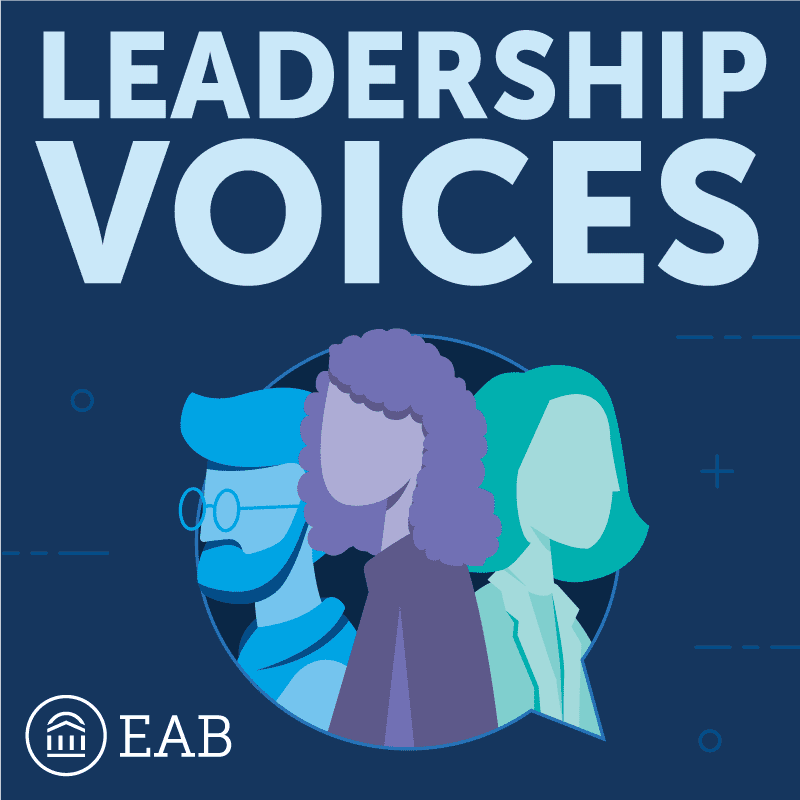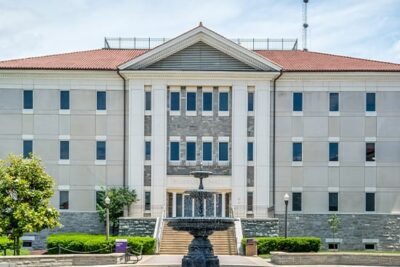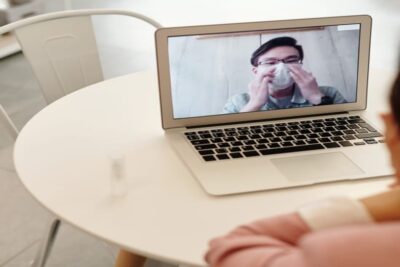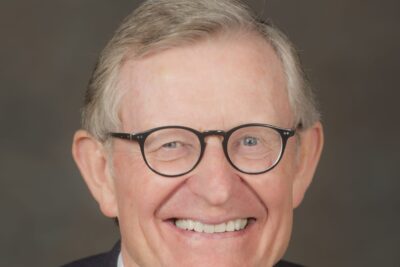
Education leaders everywhere are making fast, difficult, and bold decisions. That’s why we launched Leadership Voices, a series on leaders who meet extraordinary challenges with vision and courage.
By Dr. Melinda Treadwell, president of Keene State College
In higher education leadership, as is elsewhere, we each bring our individual gifts and talents to whatever we face. When the COVID-19 pandemic struck, past experience and education have helped me in some ways: my background is in inflammatory pulmonary diseases. Prior to coming to Keene State, I held a number of positions as public health risk educator and environmental policy expert. Across these jobs, my responsibility has been to take complicated issues and translate them to policymakers and the public. When we make complex issues accessible and understandable, people can own their agency and protect themselves and others.
In these situations, I ask myself, given the known and the unknown risks that people could be exposed to the pandemic, are we involuntarily placing someone at risk? If we send our students away and then bring them back without knowing their status, will we then expose faculty, staff, and other students involuntarily because they aren’t choosing to be at Keene State?
Putting my public health experience to the test

In the early part of the pandemic, we had to make very quick decisions about whether we would return from spring break. We had students who had traveled to areas that were starting to see early escalation in incidence rates. There were a lot of difficult questions. We thought we could control the risk. We had ideas of how we would monitor, track, and work with our hospital and local and state health authorities. But then I had a faculty member who tested positive and who had been on campus during a day of early symptoms.
This moment proved that you can’t blend public relations and a pandemic for public messaging. And I said to the board, I cannot hold this information until we all have our agreements together. I need to communicate to my city and community that we have a positive case and that we are in contact tracing for over 60 individuals who we know had contact. I need to ask our campus to shelter in place or reduce operations until we can be sure the disease had not spread further.
In that moment, the board supported me. I was able to release a video that evening, and we curtailed operations until we could track and map the incidence.
In a similar vein, we made the decision to set up an alternate care site at our recreation center, staffed by National Guard, in case a surge of cases overwhelmed the hospital’s capacity. Even with uncertain future revenues, we put resources into the alternate care site. I conveyed in great detail to our community how much it would cost us, how we were working with federal government to recoup those costs, and why it was the right thing to do for our communities. As a public college, it’s part of our mission. I received an outpouring of letters, thanking me for making some hard choices and giving them the information to understand why those decisions had been made. It’s been really profound.
A shared pain, and plan, with students
I feel my students’ sense of loss over this semester, particularly for seniors who were supposed to be able to celebrate their accomplishments together. I sat down with the senior class, virtually, to decide how we would proceed with their commencement; we landed on pairing it with our alumni weekend in the fall. The senior class felt that, unlike a number of their friends who had their commencements canceled without their input, we had worked together on this decision. They understood that their future was as important as a business or public health decision that we had to make.
When students couldn’t come back from spring break, we planned a structured move-out to allow students to collect their belongings in phases. Faculty, staff, and administrators were stationed within residential halls to oversee checking out and cleaning. I checked students in at one of the upperclass student housing units, and I didn’t realize how much that would matter to families. People recognized me and said, “Oh my gosh, aren’t you the President?” For me, it’s about showing up. How can we do something for these students that shows we love them and are grieving for this time we were all supposed to be together?
“Our people are afraid, whether it’s our board members, faculty, staff, students, or members of our community. But I am hopeful and confident that information can help us overcome fear.”
– Dr. Melinda Treadwell, president of Keene State College
Charting a path forward
Over the past few weeks, I have had the privilege to work not only with my colleague presidents from the other institutions but also with their scientists, emergency first responders, and wellness educators to put together the system’s reopening plans.
Our people are afraid, whether it’s our board members, faculty, staff, students, or members of our community. But I am hopeful and confident that information can help us overcome fear.
Feeling informed is a really important part of overcoming that fear. When we can translate complicated scientific information to the public and make that knowledge accessible, people can own their agency in any circumstance and protect themselves and others.
To other college and university presidents, let’s hang together in all of this. It is easy to become afraid and competitive. But we will get further if we try to hold together and remember that our mission and purpose is about our students. Let’s find a way to keep them safe and get them back in community because this pandemic isn’t good for any of us.
Dr. Melinda Treadwell is the current president of Keene State College. President Treadwell holds a doctorate in Pharmacology and Toxicology from Dartmouth Medical School and a bachelor’s degree from Keene State. Prior to returning to Keene State, Dr. Treadwell worked in public health risk communication and occupational environmental health.
Leadership Voices is a series spotlighting vision and courage through crisis. Nominate college presidents who have acted with extraordinary leadership at [email protected]
How college presidents lead through crisis
Crisis Response Lessons from Mount Saint Mary’s University
EAB’s Mark Shreve joins Dr. Ann McElaney-Johnson, president of Mount Saint Mary’s University in Los Angeles, to talk about the value of small colleges and how a recent crisis helped prepare her team to handle the impacts of the pandemic.
How Colleges Can Plan for and Adapt to Campus Crises
Learn how college administrators can use this crisis to strengthen leadership skills—and how schools can build greater organizational resiliency to better prepare for, respond, and adapt to future disruptions.
How one university overcame two natural disasters
In times of uncertainty, you need to lead with your heart as well as your head, says Dr. David Hall, the president of the University of the Virgin Islands.


